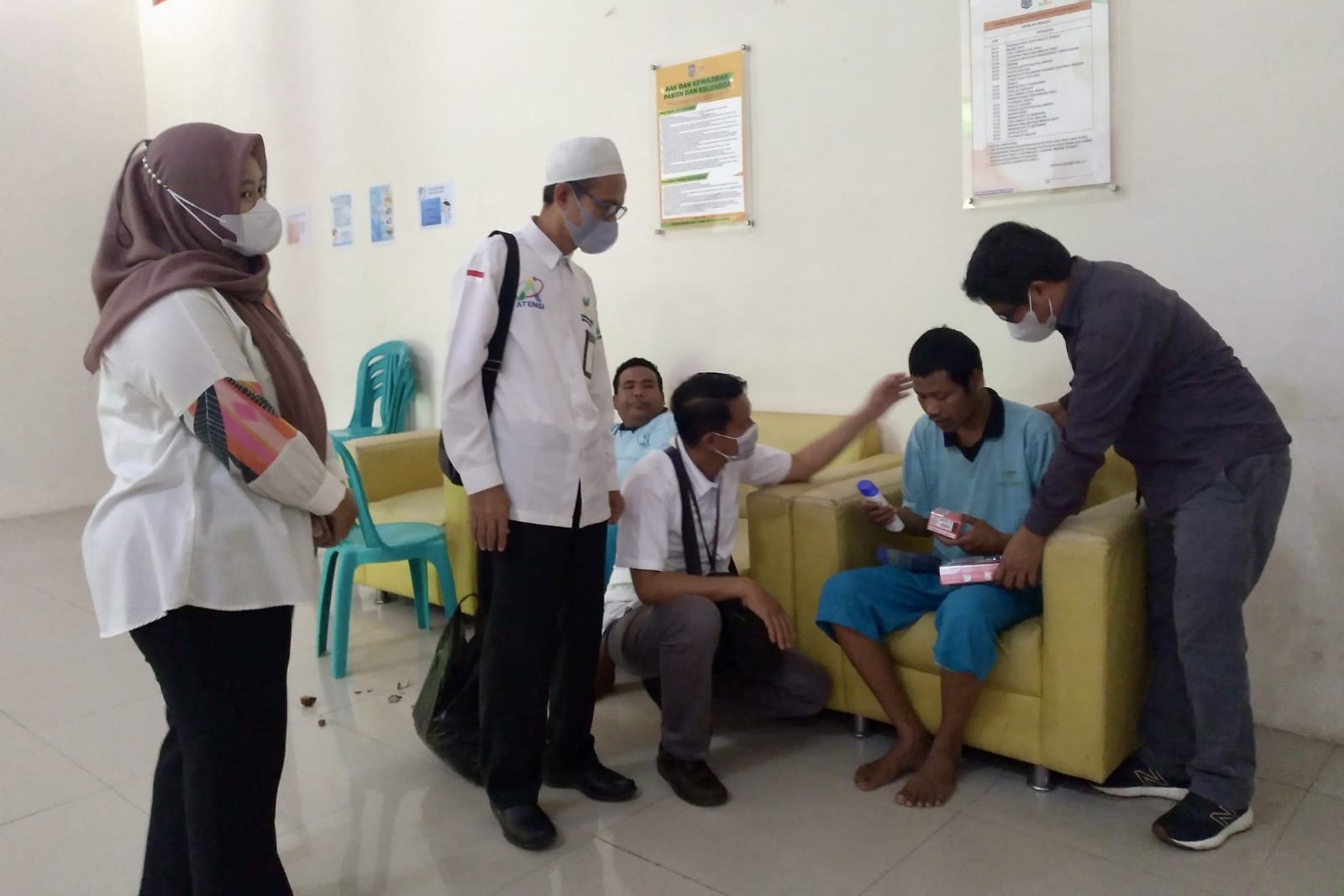MATARAM (MARCH 16, 2023) - A man in Mataram who had forgotten himself and indicated mental illness was evacuated by the Ministry of Social Affairs and the Mataram City Social Service. The evacuation step is part of Social Affairs Minister Tri Rismaharini's policy of respecting the rights of persons with disabilities.
The evacuation was carried out on a man named Mursan who was locked up by his family for a dozen years. The family argued that this 39-year-old man often disappeared and disturbed order.
"Our team went directly (to evacuate). In its implementation, we try to respect the rights of persons with disabilities. This is a concern of the Minister," said Director of Social Rehabilitation of Persons with Disabilities (RSPD) Nursyamsu on the sidelines of the evacuation with the Social Service of Mataram City, West Nusa Tenggara, recently.
To Mursan, the RSPD Team helped Mursan get a civil identity, which had not been obtained so far. Therefore, the Ministry of Social Affairs team brought officers from the Population and Civil Registration Office of Mataram City to record e-KTP directly at Mursan's house.
It didn't take long, Mursan's ID card was finished within a day. On March 8, Mursan received his identity card as an Indonesian citizen. Previously, Mursan never had an identity card. Since the age of 15, he had begun to show symptoms of mental illness.
Nursyamsu said it was initially difficult to persuade the family to bring Mursan to the hospital for treatment because the family refused. However, with advocacy and persuasive approaches, the family finally agreed.
"PM (Beneficiary) was brought to Mutiara Sukma Mataram Mental Hospital to receive mental health services and hospitalization," said Nursyamsu.
The cost of treatment while in the hospital is borne by BPJS. The local government also helped through the UHC (Universal Health Coverage) program. In addition, the Ministry of Social Affairs also provided Social Rehabilitation Assistance (ATENSI) to Mursan and his family. The assistance provided is in the form of necessities, fulfillment of nutrition, personal hygiene tools, clothing, and room needs for Mursan such as mattresses, blankets, carpets, and other equipment.
"We pay attention and fulfill his basic needs. In addition, they are given activities to prevent blackouts," he said.
Previously, when he was 15 years old, Mursan had worked in Sumbawa. However, it did not last long. After working for 2 months, he had to be sent home because he got malaria. Since then, his mental health has declined.
Mursan received treatment for nine months but he ran away and disappeared for two years. Because he often disappeared and committed acts that disturbed the community, the family finally locked Mursan up at home.
Confining or even shackling is often the family's choice in dealing with family members with mental disorders. This is contrary to the principles of humanity.
Therefore, Nursyamsu encourages the community
not to confine family members who have mental disorders. “People can contact the
nearest Ministry of Social Affairs’ Center or Social Services Office so that
they can be handled,” he said.
 Bahasa
Bahasa
 English
English


